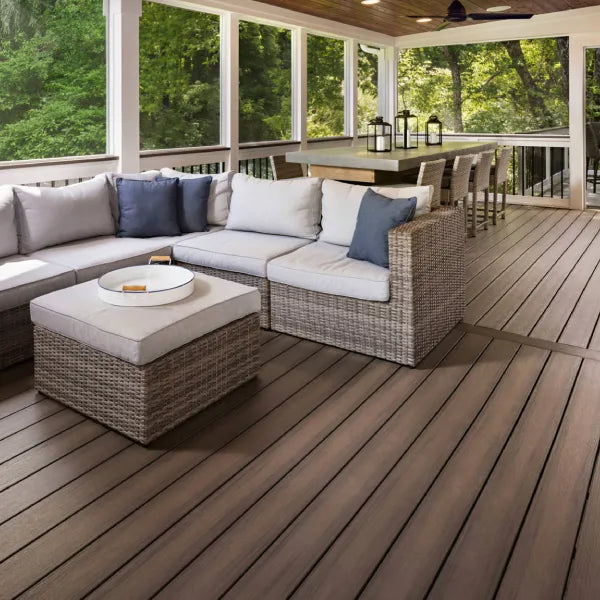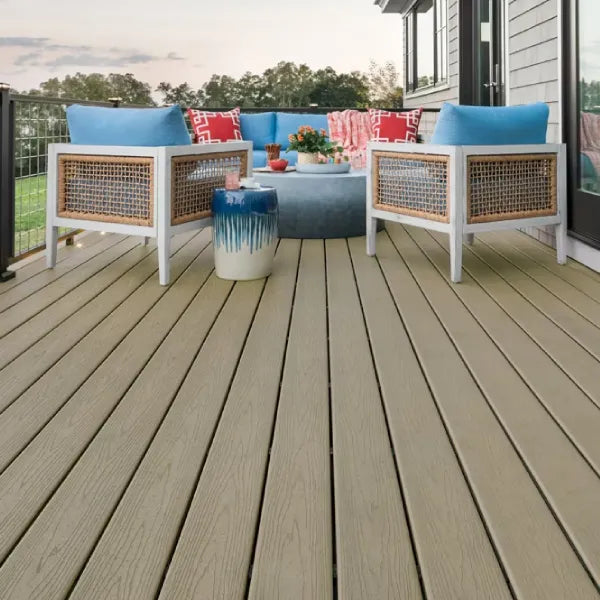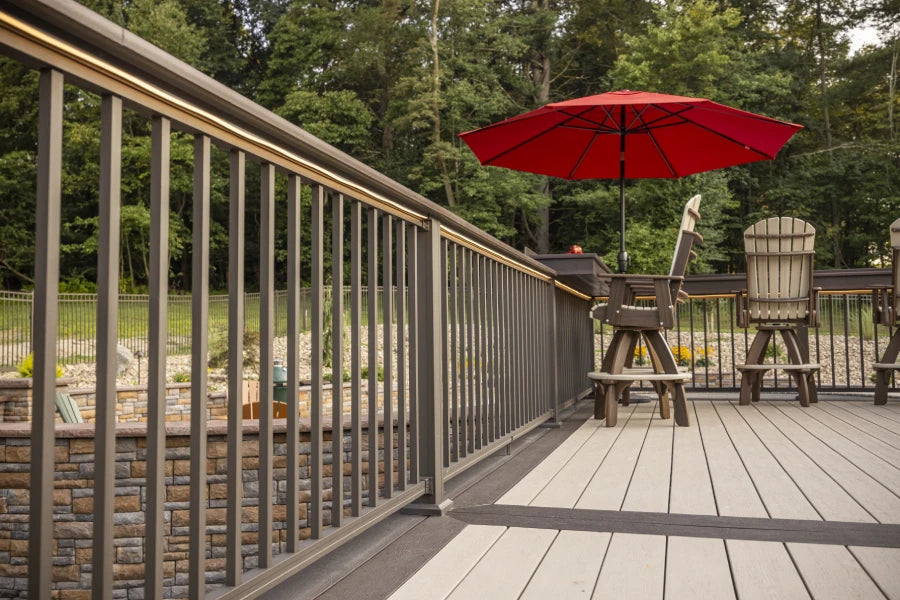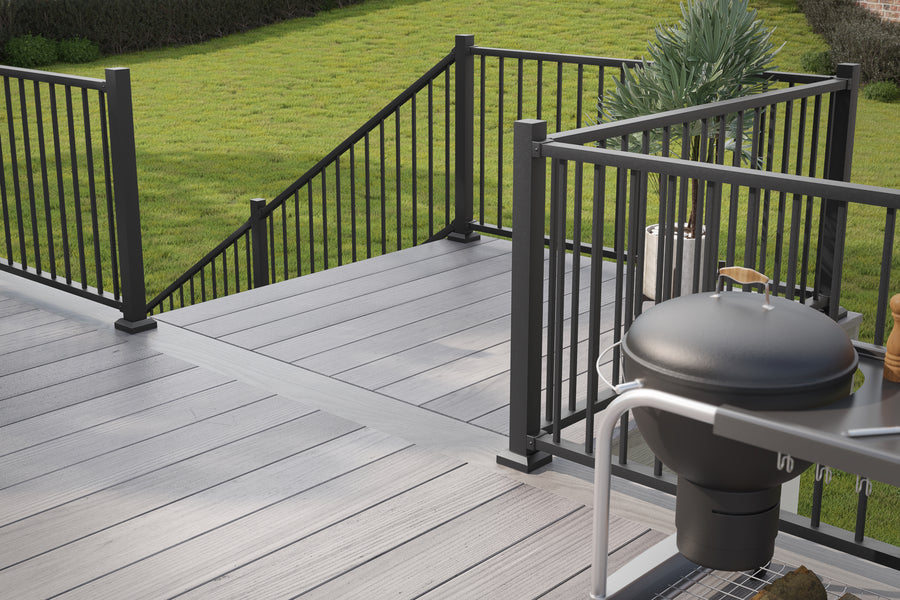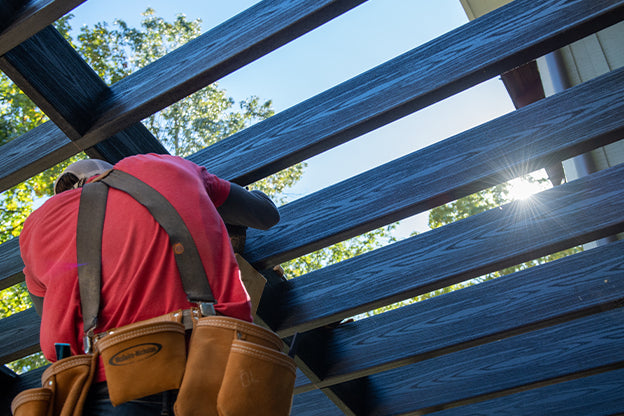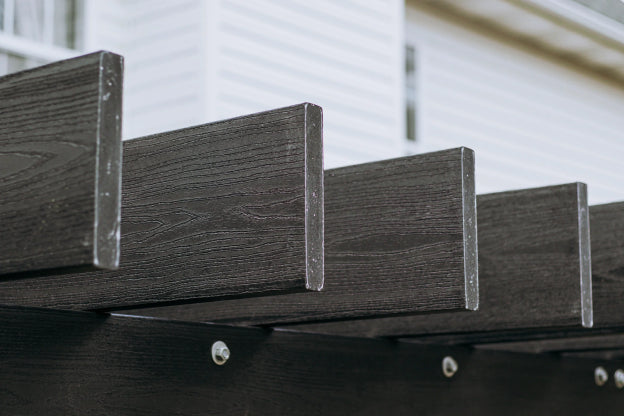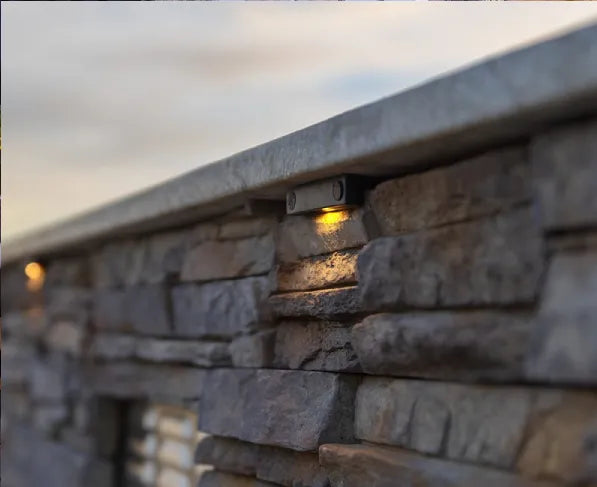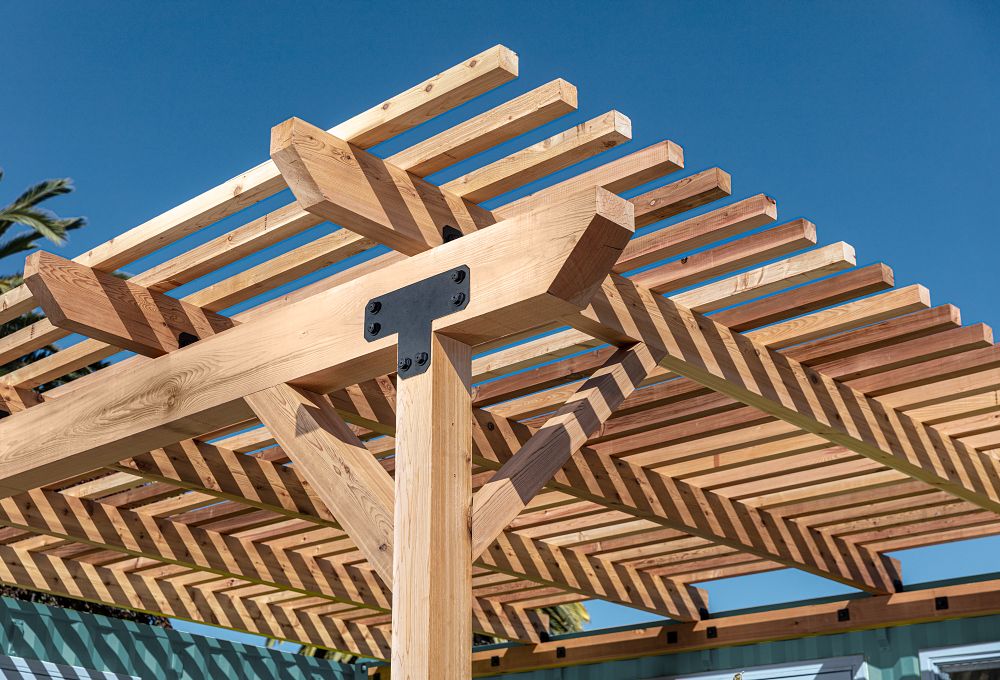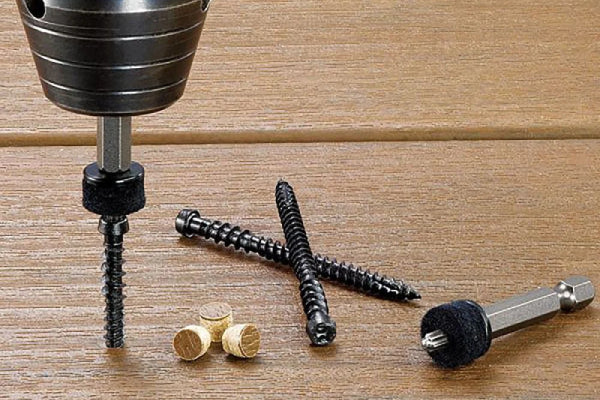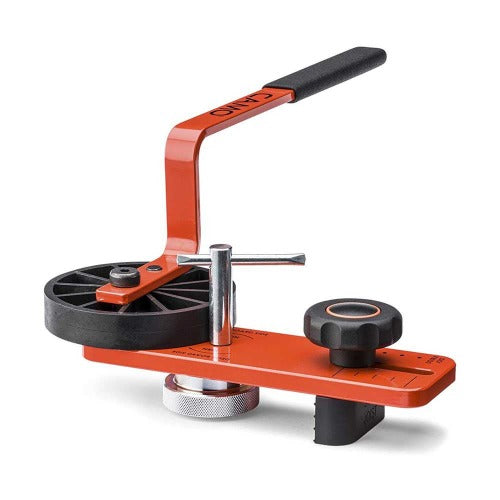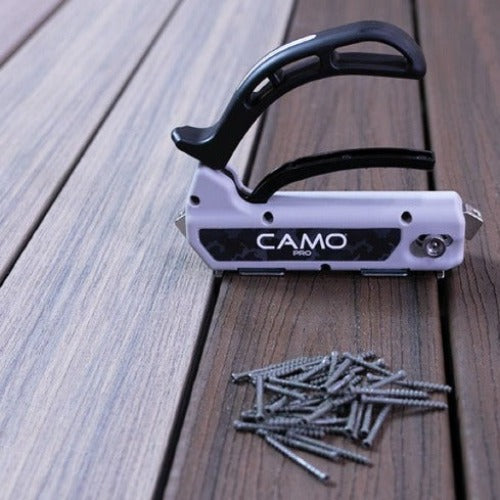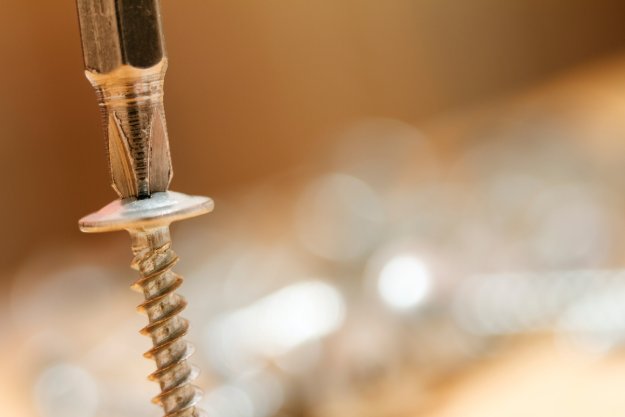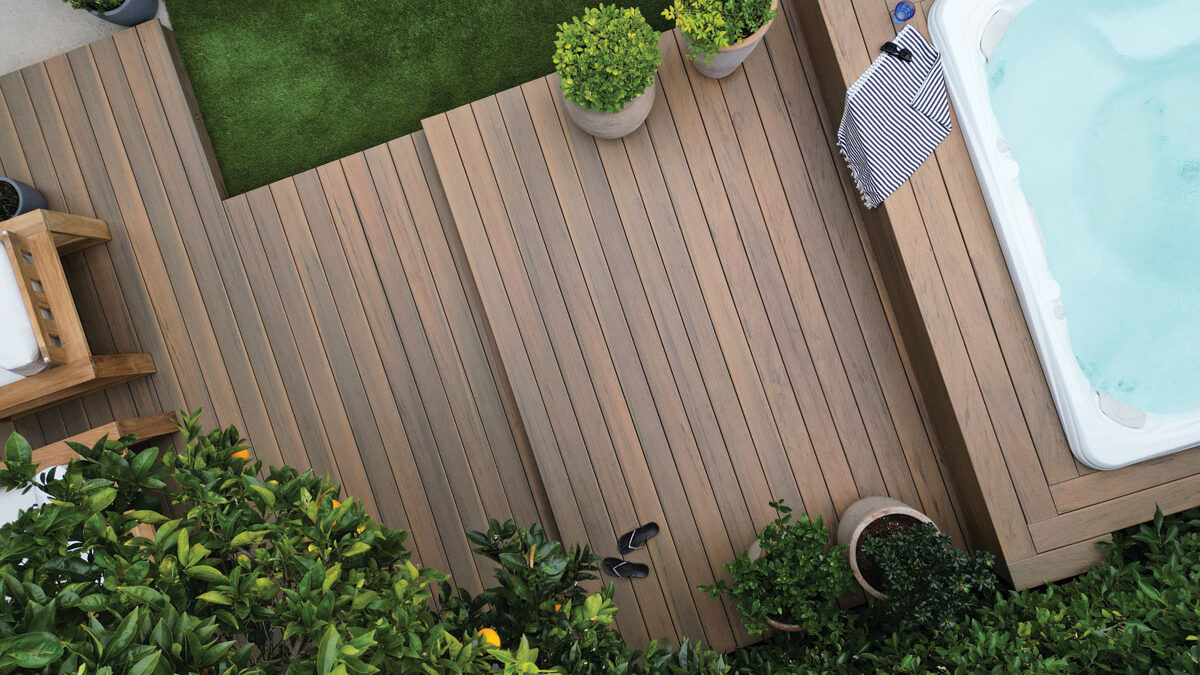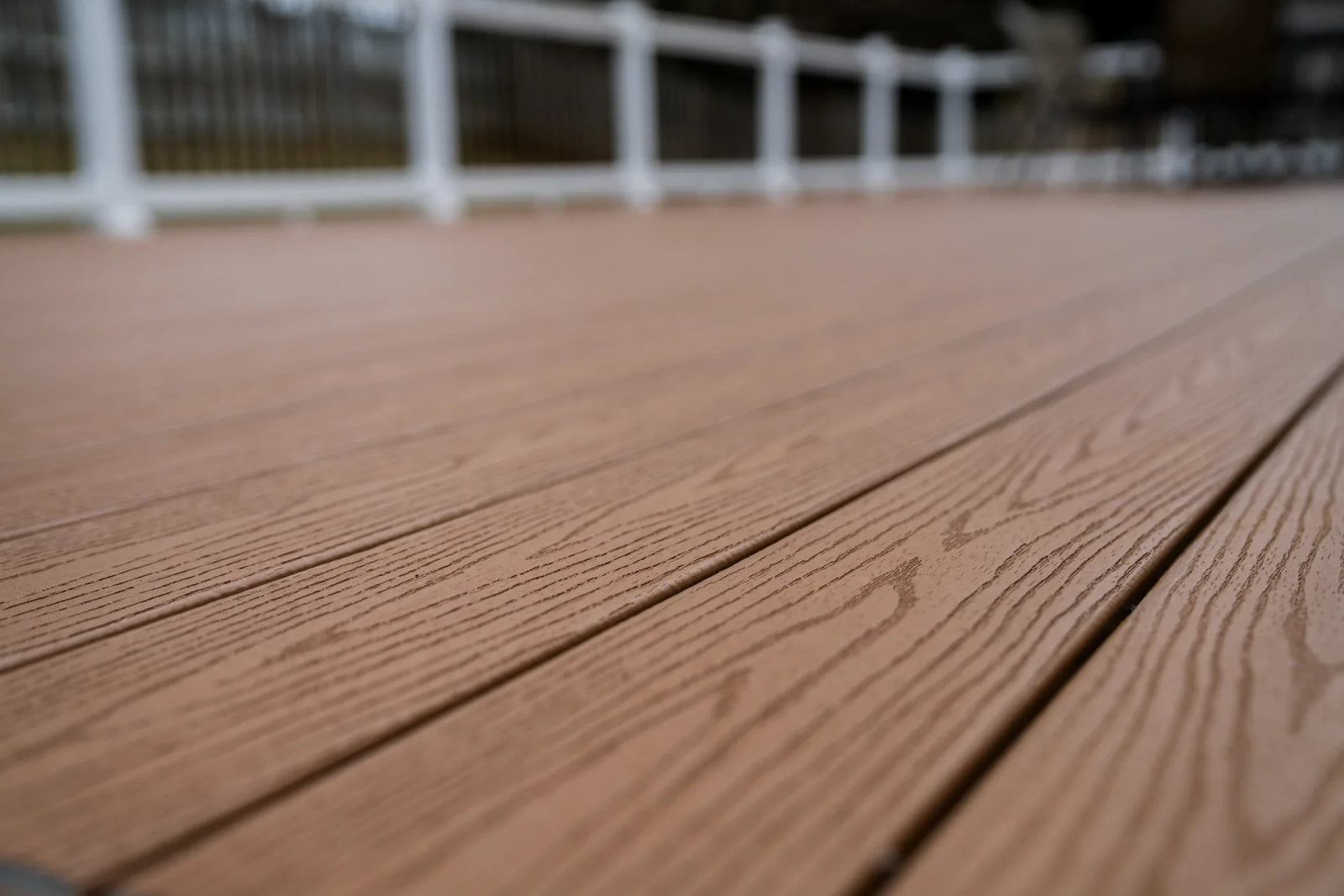Understanding Deck Screws vs Construction Screws
Ever stood in the aisle of a hardware store, deck screws in one hand and construction screws in the other, unsure which to choose for your project?
It's a dilemma that's plagued many DIY enthusiasts. With such a huge assortment of screws on the market, it can be overwhelming and confusing. Each type of screw has its own set of characteristics, uses, and benefits, and choosing the right one can be the key to success in your DIY projects.
In this post we'll dive into what sets these two apart – from their unique designs to their applications, helping you make informed decisions on your next project.
Commonly Used Terms When Talking About Deck and Construction Screws
While screws may seem like simple fasteners, they come in a variety of types, each with unique characteristics and applications. Let’s go over some commonly used terms when discussing deck and construction screws.
Shank: The cylindrical body of the screw that extends from the head to the tip.
The shank is the backbone of the screw and gives the screw its strength and power. Deck screws typically have a larger shank than construction screws to withstand the rigors of outdoor applications.
Thread: The helical ridge runs along the shank of the screw providing gripping power.
The thread is the ridge that spirals along the shank to lock the screw firmly in place. Deck screws have a deeper thread than construction screws, giving them extra bite when it comes to penetrating and gripping wood, allowing them to sink deeper into wood and provide a stronger, more secure connection.
Head: The enlarged end of the screw that provides a bearing surface for the driving tool.
Deck screws and construction screws typically have different head styles, such as flat head, Phillips, Torx, or square. The screw head style choice may depend on the specific application and the desired appearance, whether it's a flush finish or a more visible accent.
Tip: The pointed end of the screw that penetrates the material being fastened.
The tip acts as the screw's spearhead. It's the sharp end that pierces through the material, creating a secure connection. Deck screws have a sharp tip to easily penetrate wood fibers and composite decking materials.
Drive type: The type of tool required to drive the screw, such as Phillips, Torx, or square.
Deck screws and construction screws typically use Phillips, Torx, or square drive types, offering compatibility with a wide range of tools and personal preferences.
Material: The material the screw is made of, such as stainless steel, zinc-coated steel, or brass.
The material the screw is made of determines its durability and resistance to various environmental factors. Deck screws are typically made of corrosion-resistant materials like stainless steel or zinc-coated steel to withstand outdoor conditions. Construction screws may be made of various materials, including hardened steel, stainless steel, or zinc-coated steel, depending on the specific application.
Size: The diameter and length of the screw, typically expressed in inches or millimeters.
Deck screws are typically longer than construction screws to provide adequate penetration and holding power in decking materials. The choice of screw size will depend on the thickness of the materials being fastened.
Self-tapping: The ability of a screw to create its thread in the material being fastened, eliminating the need for a pre-drilled hole.
Self-tapping screws are versatile fasteners that can be used in a variety of materials. This makes them a time-saving and efficient choice for many applications.
Deck Screws: Built for the Outdoors
Deck or decking screws, as their name suggests, are specifically designed for use in exterior applications, such as deck construction, fences, and porches. They are typically made of corrosion-resistant stainless steel or zinc-coated steel, which helps them withstand the elements. Deck screws also have a larger shank and deeper thread than construction screws, which provide greater strength and holding power.
Construction Screws: For General Use
Construction screws are a more general-purpose type of screw that can be used for a variety of indoor and outdoor projects. They are typically made of hardened steel, which makes them strong and durable. Construction screws also have a smaller shank and shallower thread than deck screws.
When to Use Deck Screws
Deck screws are the best choice for any project where you need strong, corrosion-resistant screws that can withstand the elements. This includes:
- Decks
- Fences
- Porches
- Trellis
- Garden furniture
When to Use Deck Screws
Deck screws are the best choice for any project where you need strong, corrosion-resistant screws that can withstand the elements. This includes:
- Decks
- Fences
- Porches
- Trellis
- Garden furniture
When to Use Construction Screws
Construction screws are a good choice for general-purpose applications where you don't need the same level of corrosion resistance as deck screws. This includes:
- Framing
- Sheathing
- Subfloor
- Trim
- Drywall
| Common Types of Deck Screws | Description |
| Standard Wood Deck Screws | General-purpose deck construction |
| Composite Deck Screws | Specifically designed for composite decking materials |
| Structural Deck Screws | High-load applications |
| Hidden Deck Fasteners | Concealed below the surface for a clean appearance |
| Common Types of Construction Screws | Description |
| Wood Screws | General-purpose woodworking applications |
| Drywall Screws | Specifically designed for drywall |
| Lag Screws | Large, heavy-duty screws commonly used to secure heavy lumber in framing and structural applications |
| Self-Tapping Screws | Create their own thread in the material, eliminating the need to pre-drill |
| Masonry Screws | Designed for masonry materials like brick, concrete, and stone |
Additional Considerations
Here are a few additional things to consider when choosing screws:
- The type of wood you are using: If you are using hardwood, you will need to use screws with a larger shank and deeper thread.
- The size of the screw: The size of the screw will depend on the thickness of the wood you are using.
- The brand of screw: There are many different brands of deck screws and construction screws on the market. It is important to choose a brand that is known for its quality and durability.
- Composite deck screws: If you are using composite decking materials, opt for composite deck screws specifically designed for this purpose. These screws offer superior corrosion resistance. They also have a larger shank and deeper thread compared to traditional deck screws, providing enhanced strength and holding power in composite materials.
Maintaining and Replacing Deck Screws and Construction Screws
Maintaining and replacing deck screws and construction screws is an essential aspect of ensuring the longevity and safety of your outdoor structures. Regular inspection, prompt repair, and proper replacement are crucial steps in keeping your deck and other wooden structures secure and functional. Make sure to store screws in a cool, dry place to protect them from moisture and corrosion.
When to Replace?
Screws don’t last forever. Watch out for signs like rusting, loosening, or warping as they're clear indicators that it’s time to replace them.
The cost of replacing worn-out screws is far less than dealing with damaged decks or structures due to failed fasteners. Replacing both deck screws and construction screws is a relatively straightforward process.
Choose screws of the same size and material as the originals to ensure compatibility. For deck screws, select corrosion-resistant stainless steel or zinc-coated steel screws to withstand outdoor conditions. Use a screwdriver or power drill to carefully remove the old screws and replace them with new ones.
Choosing Deck Screws vs Construction Screws for Your Project
Choosing the right screw for your project doesn’t have to be a guessing game anymore. Now that you understand the unique characteristics of deck screws and construction screws, you can easily choose the right fastener for your project!
Visit The Deck Store for All Your Decking Needs
Whether you're embarking on a new decking project or seeking maintenance supplies, The Deck Store has you covered. Our extensive selection of high-quality deck screws, construction screws, and other decking essentials will ensure your project is a success.
 This item ships for FREE!
This item ships for FREE!